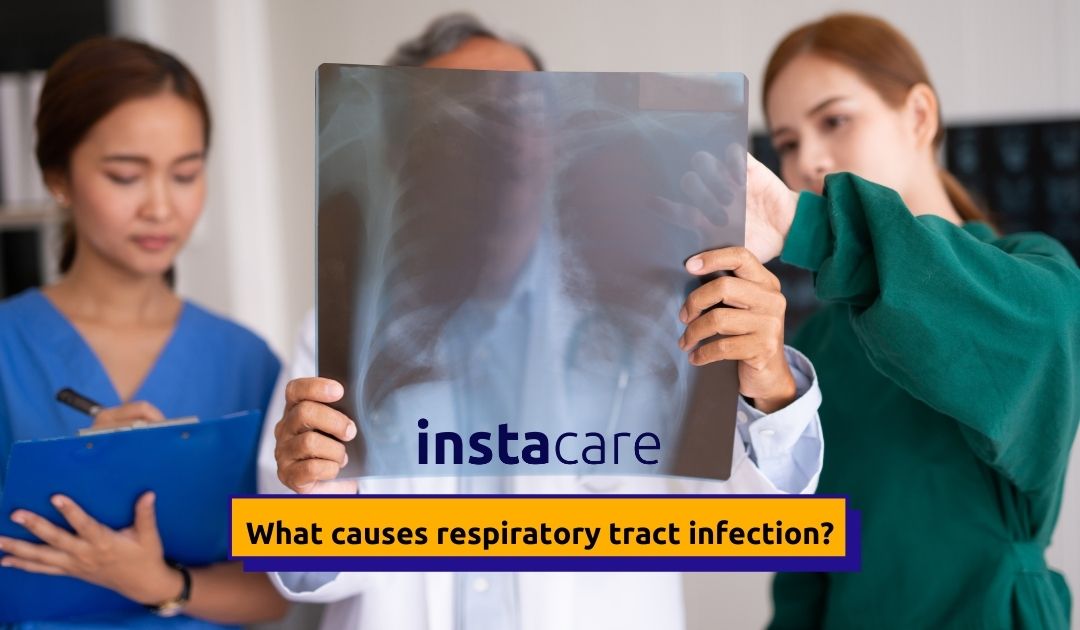Like the liver, heart, and brain, our respiratory tract is also an essential organ for our survival. Improper functioning can lead to life-threatening conditions. Our body needs oxygen to function well, otherwise, the organs will die. And for the efficient gaseous exchange, our respiratory tract plays a role. Therefore, if it does not work well, we cannot survive. To keep ourselves healthy and going, we need to take care of our respiratory tract as well.
When broadly classified, respiratory tract infections can be named upper respiratory tract infections and lower respiratory tract infections. However, some infections may affect both, the upper and lower respiratory tract.
The upper respiratory tract infections are the ones that affect the nasal passage and the sinuses. While lower respiratory tract infections are the ones that affect the lungs and airways. The latter is more serious as compared to the other. Some of them are as follows.
Common cold
The most common upper respiratory tract infection that affects millions of people annually is the common cold. It shows the signs and symptoms of runny nose, sneezing, cough, and headache. Usually, it resolves on its own over time. If you want to consult with the best general physician in Islamabad book an appointment through InstaCare.
Flu
Flu or influenza, a viral infection that affects the upper as well as the lower respiratory tract. It shows the signs and symptoms of fever, runny nose, cough, fatigue, and body aches. Flu can be prevented by getting a flu shot at the right time. However, it resolves on its own.
Pneumonia
Pneumonia is the inflammation of the lungs that occurs due to viral, bacterial, or fungal infection. It is a lower respiratory tract infection that needs prompt treatment. If left untreated, it can lead to some serious life-threatening complications. Your healthcare provider may prescribe you antibiotics to get rid of it. Pneumonia represents high-grade fever, chest pain, cough, fatigue, difficulty breathing, and loss of appetite. You may need to get hospitalized for its treatment. If you are suffering from Pneumonia and you want to consult with the best pulmonologist in Lahore you can call on the helpline number of InstaCare to find the right professional for your concerns.
Sinusitis
Sinusitis is the inflammation of sinuses-the cavities present in your brain. It is an upper respiratory tract infection that usually occurs due to a viral or bacterial infection. The symptoms of sinusitis are nasal congestion, severe headache, pain and tenderness around cheeks and forehead, cough, fever, and inability to smell.
Bronchitis
Bronchitis is the inflammation of the bronchioles that usually occurs due to viral or bacterial infection. It is a lower respiratory tract infection that needs prompt medical treatment. The signs and symptoms may include difficulty breathing, fever, cough (either dry or productive), headache, and body aches.
Tonsillitis
Tonsillitis is the inflammation of glands located at the backside of your throat. It usually occurs due to a viral or bacterial infection and is more common in children as compared to adults. Tonsillitis is an upper respiratory tract infection that represents a sore throat, difficulty swallowing, runny nose, fever, headache, and body aches. Treatment includes antibiotics, and if it occurs repeatedly, your healthcare provider may advise removing the glands through a simple surgery.
Conclusion
Respiratory tract infections are contagious because the air droplets spread through cough and sneezing. Therefore, you must take extra care of your loved ones if you are having a respiratory tract infection. Use tissue paper to cover your mouth when you cough and sneeze. Do not share glasses and utensils with them. Also, try to isolate yourself in a room, or at least maintain a distance from them, so they do not catch the infection.
You must wear a mask while going out if you have respiratory tract infections as it helps in stopping the spread. If you have a fever and difficulty breathing, you must consult with the best general physician in Pakistan through InstaCare.




